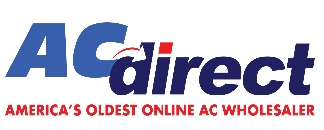Insurance Savings and the Surprising Impact of Air Conditioners on Your Premiums
-
 By
Michael Haines
By
Michael Haines
- Jan 11, 2025

By Mike Haines 1/11 The relationship between home amenities and insurance premiums is essential for homeowners looking to optimize both comfort and financial security. At AC Direct, we recognize that air conditioning systems are not only pivotal for maintaining indoor comfort but also play a significant role in determining property insurance costs. In this comprehensive guide, we explore how having a modern, efficient air conditioning system can impact your home insurance premiums. By examining the factors that insurance companies consider and the benefits of high-quality HVAC systems, we aim to provide homeowners with the insights needed to make informed decisions that enhance their home’s safety and reduce insurance costs.
Impact of Air Conditioners on Property Insurance Premiums
Homeowners invest in various amenities to enhance their living environments, and air conditioning systems are among the most popular and essential. Beyond providing comfort during scorching summer months, air conditioners can influence property insurance premiums in meaningful ways. Let’s take a look at how air conditioning systems impact home insurance costs, the factors insurance companies consider, and the advantages of installing high-quality HVAC systems.
Key Highlights
- How Air Conditioners Influence Insurance Premiums
- Modern AC systems with surge protection, humidity control, and smart monitoring can reduce insurance costs.
- Effective humidity control prevents mold and structural damage, leading to lower insurance risk.
- Newer air conditioning units with fire safety enhancements lower the likelihood of electrical fires, improving insurability.
- Factors Insurance Companies Consider
- Age & Condition: Newer, well-maintained systems are favored over outdated units.
- Type of System: Central air and mini-splits offer more protection than older window units.
- Energy Efficiency: High-SEER air conditioners can qualify homeowners for insurance discounts.
- Installation Quality: Professionally installed HVAC systems ensure safety and operational efficiency.
- Benefits of High-Quality HVAC Systems
- Longevity & Reliability: Durable units reduce the likelihood of failures and property damage.
- Advanced Safety Features: Automatic shut-off mechanisms and smart alerts prevent overheating and malfunctions.
- Enhanced Home Value: Modern AC systems increase property resale value and may lower insurance rates.
- Statistical Insights on HVAC & Insurance Premiums
- NAIC Study: Energy-efficient HVAC systems can lead to up to 10% lower insurance premiums.
- State Farm & Allstate Discounts: Some insurers offer policy reductions for homes with modern AC systems.
- Real Estate Data: Homes with updated HVAC systems sell for higher prices and often qualify for better insurance rates.
How Air Conditioners Influence Insurance Premiums
Insurance premiums are calculated based on a variety of factors that assess the risk associated with insuring a property. Air conditioning systems can influence these premiums by affecting the overall safety, security, and resilience of a home. Here are some key ways in which air conditioners impact insurance costs:
Enhanced Property Protection
Modern air conditioning systems often come with advanced features such as built-in surge protectors, humidity control, and smart monitoring. These features help protect the HVAC system from electrical surges, moisture damage, and other potential issues that could lead to costly repairs or replacements. By reducing the risk of damage, homeowners may benefit from lower insurance premiums.
Reduced Risk of Mold and Structural Damage
Effective humidity control provided by air conditioners prevents the growth of mold and mildew, which can cause structural damage over time. Mold not only poses health risks but also leads to expensive remediation processes. Insurance companies view homes with well-maintained air conditioning systems as lower risk, potentially resulting in reduced premiums.
Improved Fire Safety
Older air conditioning units can be prone to electrical malfunctions, which may increase the risk of fire hazards. Modern, high-efficiency units are designed with enhanced safety features that minimize the likelihood of electrical fires. Homes equipped with these safer HVAC systems are often considered less risky to insure, which can translate to lower insurance costs.
Factors Insurance Companies Consider
Insurance companies assess multiple aspects of a property to determine premiums, and the presence of an air conditioning system plays a role in this evaluation. The following factors illustrate how air conditioners are considered in the insurance assessment process:
Age and Condition of the System
The age and maintenance status of the air conditioning unit are critical factors. Newer, well-maintained systems are less likely to fail and cause damage, leading to more favorable insurance rates. Conversely, older systems that have not been regularly serviced may be viewed as higher risk.
Type of Air Conditioning System
Different types of HVAC systems offer varying levels of protection and efficiency. Central air conditioning systems with integrated safety features are generally preferred over older, less efficient units. Additionally, ductless mini-split systems can provide targeted cooling and reduce the strain on the overall electrical system, contributing to lower insurance premiums.
Energy Efficiency
Energy-efficient air conditioners not only lower utility bills but also reduce the environmental impact of a home. Insurance companies may offer discounts for homes with high-efficiency HVAC systems, as these systems often incorporate the latest safety and performance technologies.
Installation Quality
Proper installation by certified professionals ensures that the air conditioning system operates efficiently and safely. Poorly installed units can lead to a range of issues, including electrical problems and inadequate cooling, which can increase the risk of damage and, subsequently, insurance costs. High-quality installation practices are therefore a positive factor in insurance assessments.
Benefits of High-Quality HVAC Systems
Investing in a high-quality air conditioning system offers numerous advantages that extend beyond immediate comfort. These benefits can directly and indirectly influence property insurance premiums:
Longevity and Reliability
High-quality HVAC systems are built to last longer and perform reliably under various conditions. This reliability reduces the likelihood of system failures that could result in property damage, making your home a safer bet for insurance providers.
Advanced Safety Features
Modern air conditioners come equipped with safety mechanisms such as automatic shut-off features, which prevent overheating and electrical issues. These safety features minimize the risk of accidents and damage, contributing to lower insurance premiums.
Smart Monitoring and Maintenance
Many high-end air conditioning systems include smart monitoring capabilities that alert homeowners to potential issues before they become major problems. Early detection and maintenance help prevent costly repairs and reduce the risk of damage, positively impacting insurance costs.
Enhanced Home Value
Upgrading to a high-quality HVAC system can increase your home's overall value. Insurance companies often consider the value and quality of home amenities when determining premiums, and a well-maintained, modern air conditioning system can be a valuable asset.
Case Studies and Statistical Insights
Several studies and industry reports highlight the correlation between air conditioning systems and insurance premiums:
Study by the National Association of Insurance Commissioners
According to the NAIC, homes with modern, energy-efficient HVAC systems can experience insurance premium reductions of up to 10%. The study emphasizes that proactive investments in home safety and efficiency are rewarded with lower insurance costs.
Insurance Company Policies
Major insurance providers like State Farm and Allstate offer discounts for homes with high-efficiency air conditioning systems and other modern safety features. These discounts reflect the reduced risk associated with well-maintained HVAC systems.
Home Value Impact
Real estate analyses indicate that homes with upgraded HVAC systems sell for higher prices and may experience lower insurance costs due to their enhanced safety and efficiency. This dual benefit underscores the financial advantages of investing in quality air conditioning systems.
Final Thoughts
Air conditioning systems play a multifaceted role in determining property insurance premiums, extending beyond their primary function of cooling indoor spaces. By enhancing property protection, reducing the risk of mold and structural damage, and improving fire safety, modern HVAC systems contribute to safer and more resilient homes. Insurance companies recognize these benefits, often rewarding homeowners with lower premiums for investing in high-quality, efficient air conditioning systems.
For homeowners looking to optimize comfort and financial security, investing in a modern air conditioner is a strategic decision offering long-term benefits. At AC Direct, we are committed to providing top-tier HVAC solutions that enhance your home’s comfort and air quality and support your financial well-being through potential insurance savings. Explore our extensive range of air conditioners, furnaces, and mini-split systems at AC Direct, and consult with our expert team to find the perfect HVAC system that aligns with your home’s needs and insurance goals.
Supporting Data
- How HVAC Systems Influence Home Insurance Premiums
Newer AC units with advanced safety features can reduce property insurance costs.
https://www.naic.org/ - Fire Safety and HVAC System Impact on Insurance
Properly maintained air conditioning systems lower fire hazards and insurance risks.
https://www.nfpa.org/ - Humidity Control & Mold Prevention in Homes
Effective AC humidity control prevents mold damage, reducing insurance claims.
https://www.epa.gov/mold - Energy-Efficient HVAC Systems & Home Value Impact
High-SEER AC units increase property value and improve energy efficiency.
https://www.energy.gov/energysaver/air-conditioning - Insurance Discounts for Energy-Efficient Homes
Some insurers provide policy reductions for homes with modern, energy-saving HVAC systems.
https://www.iii.org/

 and now, NASCAR Racing Sponsor
and now, NASCAR Racing Sponsor










